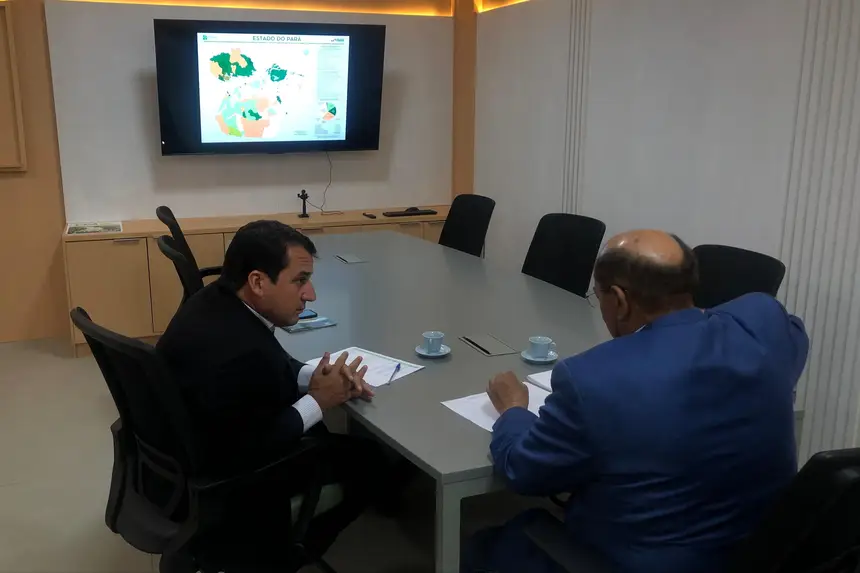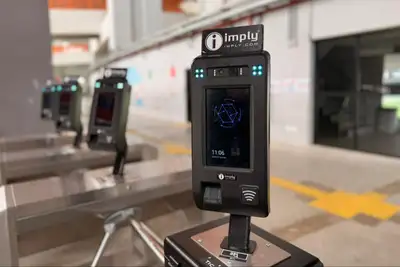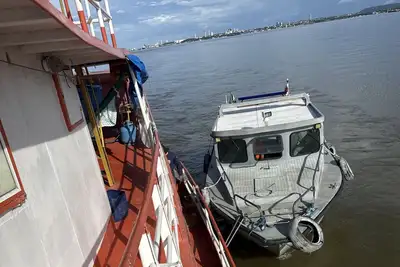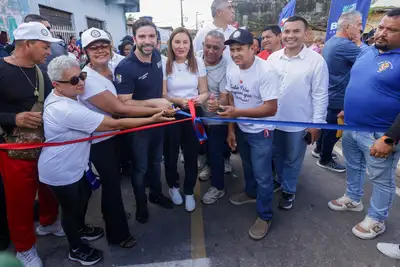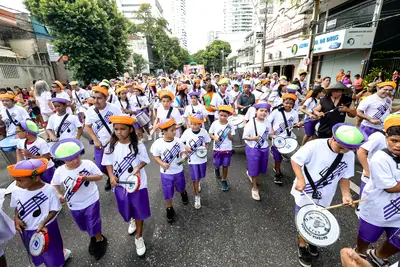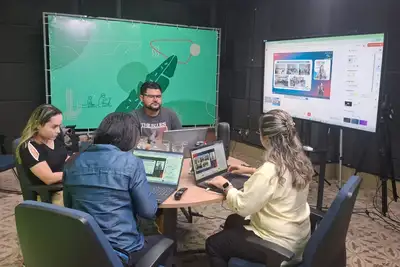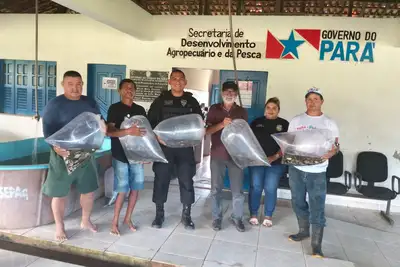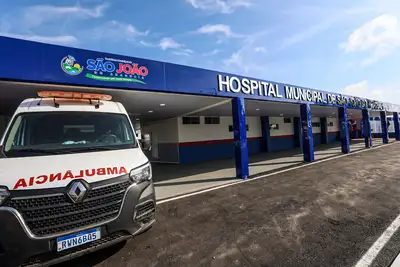Ideflor-Bio and AMATCarajás discuss partnership to strengthen environmental actions
The president of the Association, which represents municipalities in the South and Southeast of Pará, seeks support from the Institute for conservation and sustainable development projects
Strategic partnerships between the state government and municipalities in the South and Southeast of Pará for strengthening public policies aimed at environmental conservation and sustainable development were discussed by the president of the Institute for Forest Development and Biodiversity of Pará (Ideflor-Bio), Nilson Pinto, and the president of the Association of Municipalities of Araguaia, Tocantins and Carajás (AMATCarajás), Célio Marcos Cordeiro (known as Nego), mayor of Cumaru do Norte.
One of the highlights of the meeting agenda was Ideflor-Bio's support for the creation of Conservation Units (UCs) at the municipal level, such as municipal forests, a new category provided for in the State System of Conservation Units (Seuc), established by Governor Helder Barbalho in December 2023. Municipal forests are UCs that allow for the protection of forest remnants in urban areas while promoting environmental education and leisure for the local population.
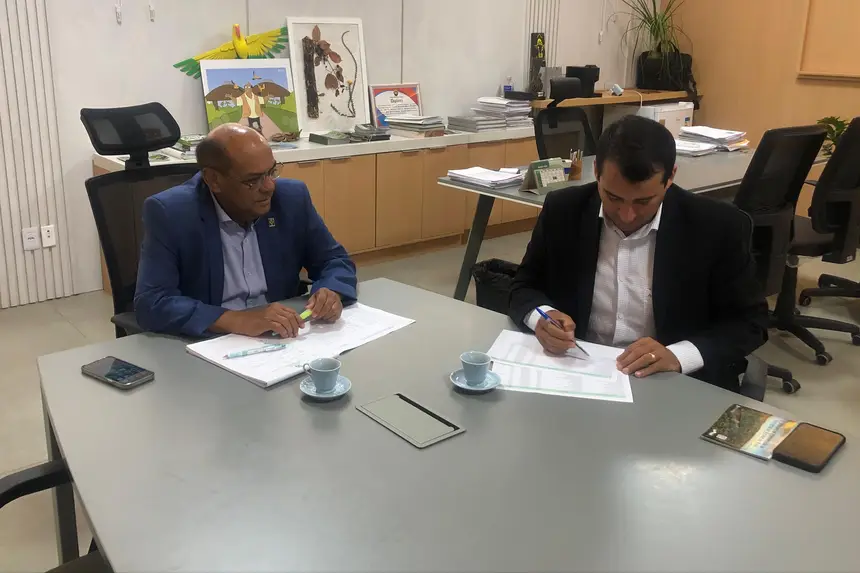
The encouragement of implementing ecological restoration projects using Agroforestry Systems (SAFs), which reconcile agricultural production with the recovery of degraded areas, promoting income for family farmers and ecological benefits such as increased biodiversity and the protection of soil and water, was also discussed. The president of AMATCarajás emphasized the importance of expanding cooperation among federative entities so that these initiatives reach communities more efficiently.
Regularization - Another relevant point was the presentation of the Environmental Protection Quota (CPA), an instrument recently regulated by the Government of Pará. The CPA allows owners of rural properties, with a legal reserve liability consolidated until July 2008, to regularize their environmental status by acquiring quotas linked to state-protected areas.
Each Environmental Protection Quota is equivalent to one hectare of protected forest and is valid for 15 years. The cost of the compensatory quota is R$ 100.00 per year, with the possibility of a one-time payment of R$ 900.00 — with a 40% discount. The non-compensatory quota, aimed at voluntary contributions from individuals or legal entities, is valued at R$ 60.00 per hectare. The state government's expectation is to use this mechanism to ensure permanent resources for the 29 state UCs.
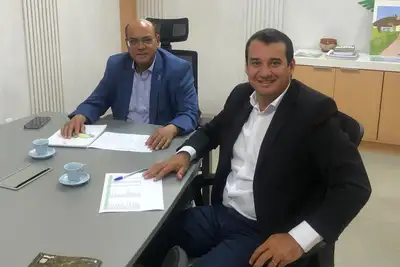
Alignment - Nilson Pinto highlighted that the meeting reinforces the strategic role of Ideflor-Bio as a facilitator of environmental public policies in the Pará territory. “This approach with the municipalities of AMATCarajás is essential for us to build joint and effective solutions. Ideflor-Bio is available to support actions that contribute to environmental regularization and sustainable development in the South and Southeast regions of Pará,” said the manager.
Nilson Pinto also stated that the meeting marks the beginning of a broader institutional dialogue between Ideflor-Bio and the municipalities of AMATCarajás, with the prospect of new joint agendas in the second half of this year. “The proposal is for environmental policies to be increasingly integrated with local realities, contributing to the protection of the forest and the improvement of the quality of life of the populations involved,” informed the president of the Institute.



